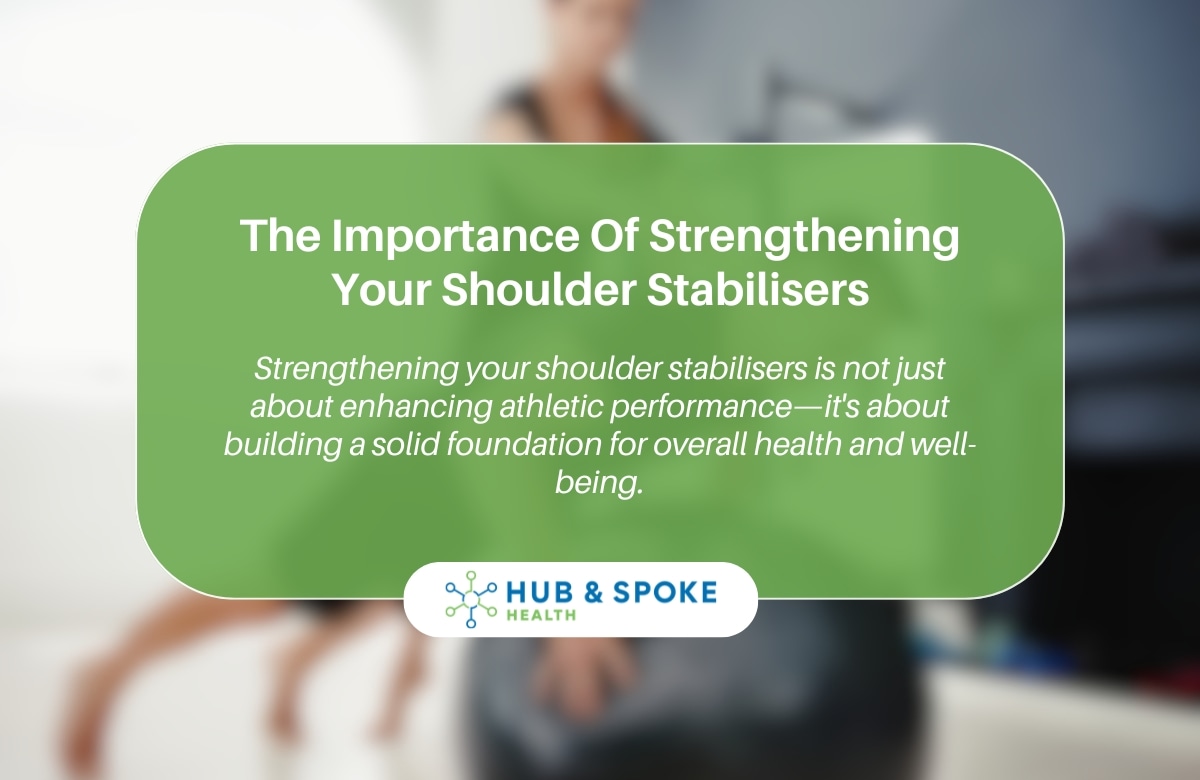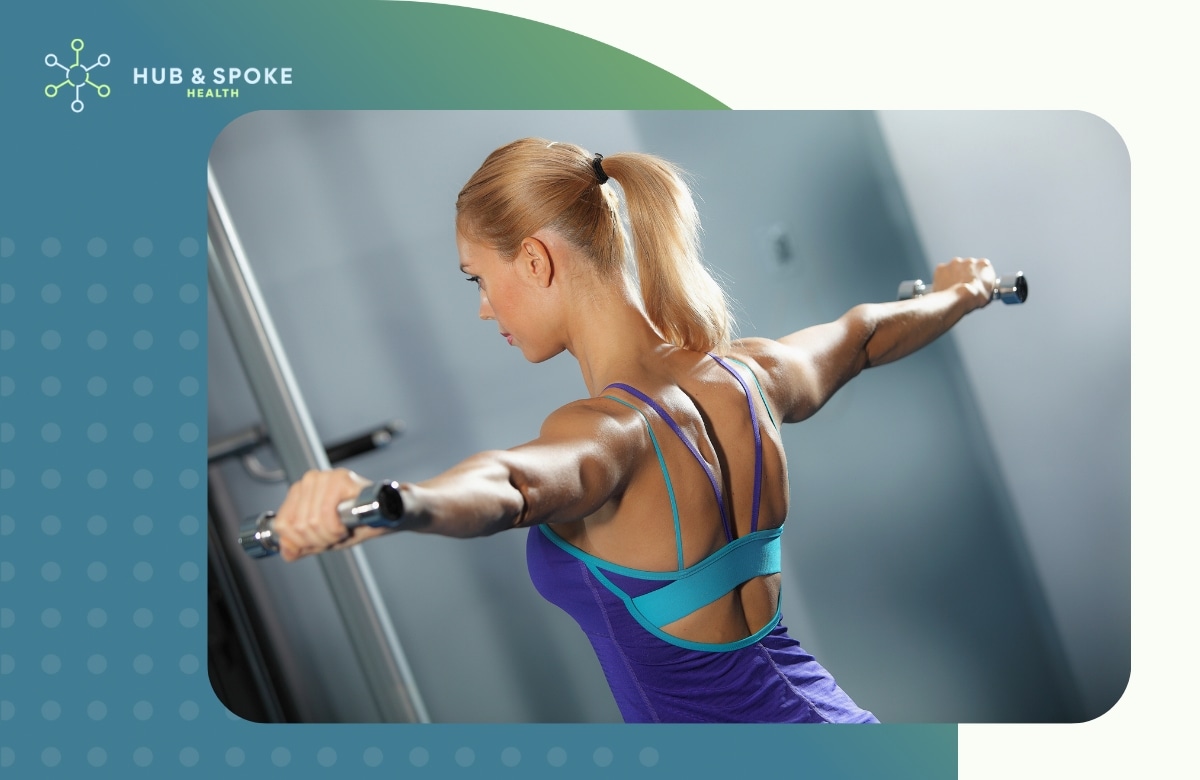The Importance Of Strengthening Your Shoulder Stabilisers
Have you ever considered how crucial your shoulder stabilisers are to your overall fitness and daily life? You might be focusing on building brawn with chest presses and overhead lifts, but what about the unsung heroes that hold it all together?
The shoulders are one of the most mobile and versatile joints in our bodies, enabling a wide range of motions vital for various activities, from lifting weights at the gym to reaching for items on a high shelf. Yet, in the race to build impressive muscle, strengthening the stabilisers often takes a backseat. This oversight can lead to imbalances, discomfort, and even injuries.
Understanding the importance of strengthening your shoulder stabilisers is essential for enhancing your athletic performance and maintaining overall shoulder health. Without a solid foundation of stability, all those hard-earned gains can be at risk.
What is scapular stability?
Shoulder stability refers to the ability of the shoulder joint to maintain its proper alignment and function without excessive movement or displacement. It involves a complex interplay of muscles, ligaments, tendons, and bones that work together to keep the shoulder in place.

Common causes for shoulder stability weakness
Shoulder stability and weakening can result from a variety of causes, including:
1. Muscle imbalances
Instability can be caused by weakness or tension in the muscles surrounding the shoulder, including the rotator cuff, deltoids, and scapular stabilisers.
2. Poor posture
Slouching or rounded shoulders can lead to muscle imbalances and poor shoulder joint alignment, reducing stability. This can eventually result in overuse injuries and chronic shoulder instability.
3. Previous injuries
Previous shoulder injuries, such as dislocations, rotator cuff tears, or labral tears, can weaken the tissues that support the shoulder joint, lowering stability. Scar tissue growth and insufficient rehabilitation following an accident can both contribute to persistent instability.
4. Excessive or repetitive movements
Repetitive exercises or actions that put excessive strain on the shoulder joint, such as overhead lifting, throwing, or swimming, can cause muscular fatigue and instability over time.
5. Weak core muscles
The core muscles are responsible for stabilising the trunk and transmitting forces between the upper and lower bodies during movement. Weakness in the core muscles can impair overall stability and increase the likelihood of shoulder injury.
6. Joint hypermobility
Some people have naturally hypermobile joints, especially the shoulder joint, which might make them prone to instability. In such circumstances, strengthening exercises and proprioceptive training are critical for increasing joint control and stability.
7. Age and degenerative changes
As people age, the muscles, ligaments, and tendons that surround the shoulder joint may weaken, resulting in diminished stability. Degenerative disorders such as osteoarthritis and tendon degeneration can also cause shoulder instability.
8. Poor movement patterns
Incorrect movement patterns or biomechanics during physical activity might put undue strain on the shoulder joint, jeopardising stability. Addressing incorrect movement patterns with proper technique and retraining is critical for lowering the likelihood of instability.
Maintaining shoulder stability
- Regular exercise: Strengthening the rotator cuff muscles and other shoulder muscles can improve stability.
View this post on Instagram
- Proper form and technique: When performing physical activities, using correct form and technique can help prevent strain on the shoulder joint.
- Rest and recovery: Adequate rest and recovery allow the shoulder joint to heal and repair.
- Physiotherapy: Physiotherapy can help address muscle imbalances, improve flexibility, and restore shoulder function.
- Avoiding overuse: Taking breaks from activities that put stress on the shoulder can help prevent injury.
If you are experiencing shoulder pain, instability, or limited range of motion, it is important to consult with a physiotherapist for proper evaluation and treatment.
Benefits of strong shoulder stabilisers
1. Injury prevention
Strong shoulder stabilisers help prevent common shoulder injuries such as rotator cuff tears, impingement syndrome, and labral tears. These muscles provide support and stability to the joint, reducing the risk of overuse or trauma-related injuries.
2. Improved performance
For athletes and individuals who engage in physically demanding activities, strong shoulder stabilisers are essential for optimal performance. These muscles enable efficient movement, power, and accuracy during overhead activities like throwing, swimming, or weightlifting.
3. Pain reduction
Weak or imbalanced shoulder stabilisers can contribute to shoulder pain and discomfort. By strengthening these muscles, you can alleviate pain and improve overall shoulder function.
4. Enhanced range of motion
Strong shoulder stabilisers help maintain a healthy range of motion in the joint. This prevents stiffness and improves flexibility, allowing for full and pain-free movement.
5. Better posture
Proper posture involves balanced muscle activation, including shoulder stabilisers. Strengthening these muscles can help correct poor posture and reduce strain on the shoulder joint.

Final thoughts
Strengthening your shoulder stabilisers is not just about enhancing athletic performance—it’s about building a solid foundation for overall health and well-being.
So, whether you are lifting weights, playing sports, or simply going about your daily activities, remember that strong shoulders are the key to unlocking your full potential. Let’s get moving and stabilise those shoulders for a stronger, healthier tomorrow!
Book an appointment with us today! Our team of experts will lead you down the best treatment path for your recovery.
source https://hubandspoke.health/strengthening-your-shoulder-stabilisers/
Comments
Post a Comment